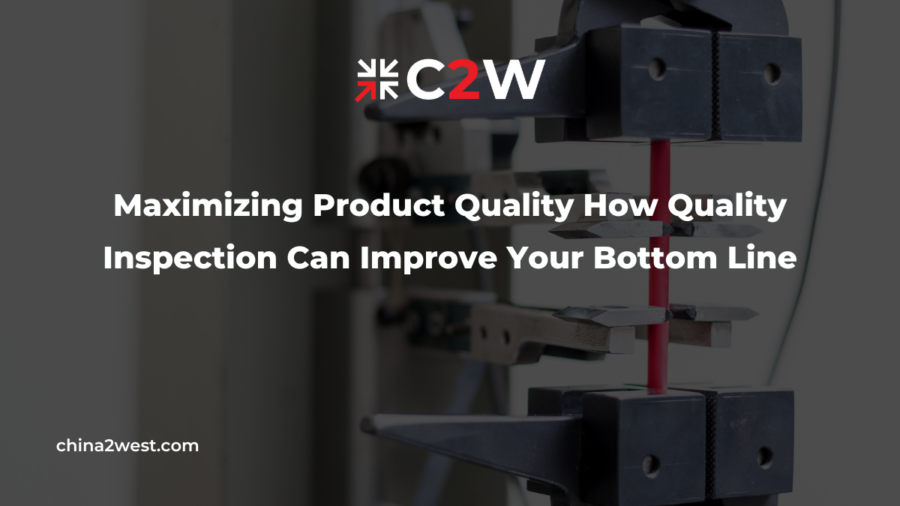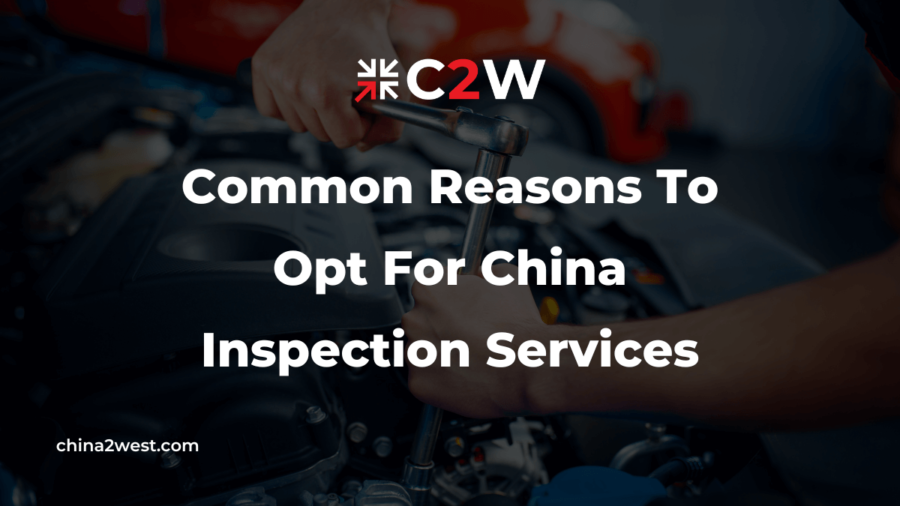China has been a major player in global manufacturing for many years, with many businesses around the world sourcing products from Chinese factories. However, quality concerns have always been a major issue for companies that import goods from China. As a result, quality inspection has become a vital part of the import process.
Quality inspection in China can be a complex process, but it is essential for ensuring that the products you receive meet the required quality standards. In this blog post, we’ll explore some of the key aspects of quality inspection in China.
Why Is a Quality Inspection Necessary?
China has a large manufacturing industry that produces goods for a variety of industries, including electronics, automotive, toys, textiles, and more. While there are many reputable factories in China, there are also many that cut corners to save costs and increase profits. This can result in substandard products that fail to meet the quality standards the importer or end user requires.
In addition, cultural differences and communication challenges can make it difficult for importers to convey their quality requirements to Chinese manufacturers. Quality inspection provides a way for importers to ensure that their products meet the required quality standards and that any defects are identified and addressed before the products are shipped.
What Is Involved in Quality Inspection in China?
Quality inspection in China typically involves several steps, including pre-shipment inspection, factory audit, and product testing.
The pre-shipment inspection involves inspecting the products after they have been produced and before they are shipped to the importer. This inspection checks for defects, damage, and other issues that could affect the quality of the products. Pre-shipment inspection is usually carried out by a third-party inspection company that is hired by the importer.
Factory audit involves assessing the quality management system of the factory that produces the products. The audit looks at the factory’s processes and procedures, including how they handle raw materials, manufacture products, and manage quality control. This audit helps the importer determine whether the factory is capable of producing high-quality products.
Product testing involves testing the products to ensure that they meet the required quality standards. This can involve testing the products for durability, safety, performance, and other factors. Product testing is usually carried out by a third-party testing company that is hired by the importer.
Main Benefits of Quality Inspection in China
Quality inspection in China provides several benefits for importers, including:
1. Ensuring quality standards
Ensuring that products meet the required quality standards is a critical benefit of quality inspection in China. By conducting thorough inspections, importers can identify and address any quality issues before products are shipped. This helps to ensure that the products meet the specified quality requirements and perform as expected. It also helps to prevent product defects and other issues that could negatively impact the end user’s experience. Ultimately, ensuring that products meet the required quality standards helps to protect the importer’s reputation and build trust with customers, leading to improved customer satisfaction and increased sales.
2. Identifying and addressing defects
Identifying and addressing defects and other issues is another key benefit of quality inspection in China. Quality inspections help to detect any defects or issues with the products, such as manufacturing defects, damages, or deviations from specifications. By identifying these issues early on, importers can work with their suppliers to address them and prevent the shipment of substandard products. This helps to minimize the risk of product recalls, liability claims, and dissatisfied customers. Additionally, identifying and addressing defects and issues before the products are shipped can help to reduce costs associated with product returns and rework, ultimately improving the importer’s bottom line.
3. Reducing Risks
Quality inspection in China helps to reduce the risk of product recalls and liability claims, which can have serious consequences for importers. By conducting quality inspections, importers can detect any quality issues or defects early on and work with their suppliers to address them before the products are shipped. This helps to ensure that the products meet the required safety and quality standards, reducing the risk of product recalls or safety incidents. Additionally, by ensuring that the products are of high quality, importers can minimize the risk of liability claims from customers who may have been harmed by defective or unsafe products. Ultimately, reducing the risk of product recalls and liability claims helps to protect the importer’s brand reputation and financial stability.
4. Boosting brand reputation
Quality inspection in China can help importers boost their brand reputation and credibility. By ensuring that the products meet the required quality standards and are free of defects and issues, importers can provide their customers with high-quality products that meet their expectations. This helps to build trust with customers and can lead to positive reviews, repeat business, and increased brand loyalty. Additionally, by demonstrating a commitment to quality and safety through quality inspections, importers can differentiate themselves from competitors and position themselves as reliable and trustworthy suppliers. Ultimately, boosting brand reputation and credibility can help importers improve their market position and achieve long-term success.
5. Facilitating compliance
Quality inspection in China can facilitate compliance with local and international regulations and standards. Quality inspections can help importers ensure that their products meet the regulatory requirements and standards of their target markets. This can include compliance with safety regulations, environmental standards, and product labeling requirements. By conducting quality inspections, importers can identify any non-compliance issues early on and work with their suppliers to address them before the products are shipped. This can help importers avoid costly penalties, legal issues, and reputational damage associated with non-compliance. Ultimately, facilitating compliance with local and international regulations and standards can help importers mitigate risks and ensure that their products are safe and legally compliant, leading to improved customer trust and market access.
Maximize Your Product’s Potential with Our Quality Control Services
Quality control isn’t something to be taken lightly. Working with a quality control company in China can help ensure that your products meet the required quality standards and specifications. However, it is crucial to choose a reliable and trustworthy partner, define your quality standards, communicate effectively, and document everything. At the same time, it is essential to avoid assuming that all quality control companies are the same, neglecting communication, overlooking cultural differences, skipping inspections, and ignoring potential red flags. By following these do’s and don’ts, you can establish a successful partnership with a quality control company in China and achieve your quality goals.
Does your business need someone to watch over quality control for all its projects? Are you interested in a dependable and knowledgeable inspector you can trust? China 2 West offers high-quality control services to ensure that all your quality control needs will be fulfilled.
With our experienced experts managing the quality control processes, you can rest easy knowing that your projects are in good hands and completed effectively and on time. Contact us today.




